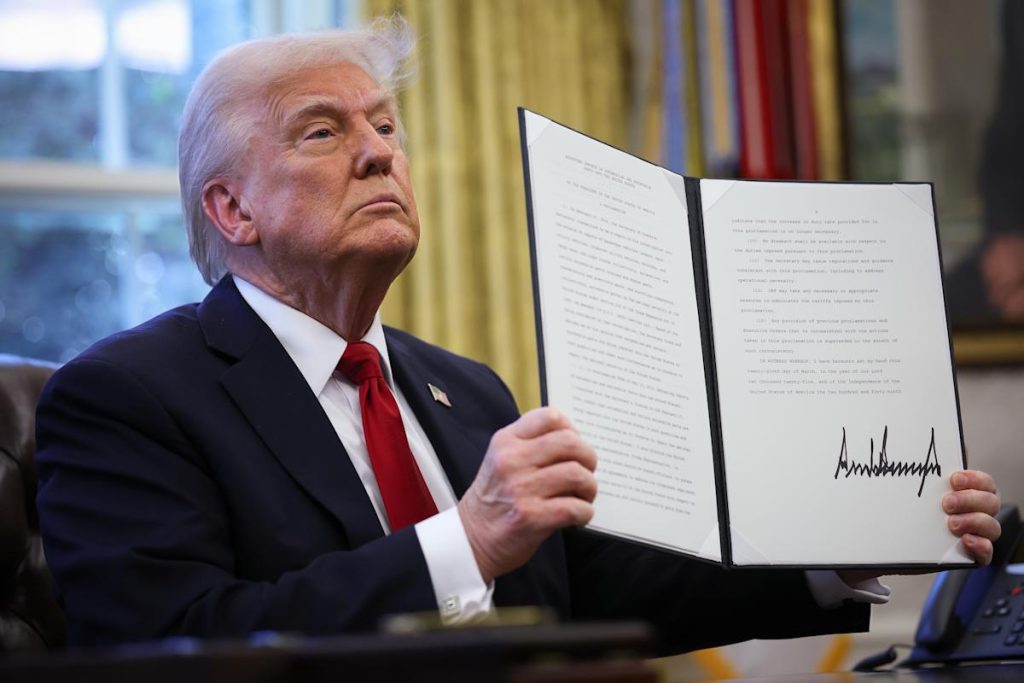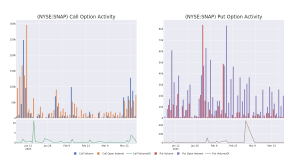
Stocks are hovering near their lowest levels of the year, with President Trump’s latest tariff announcements and fears about the US economy’s path forward sending equities lower in the final full week of the first quarter.
In the last five days of trading, the S&P 500 (^GSPC) fell nearly 2%, while the Dow Jones Industrial Average (^DJI) slipped about 1%. The tech-heavy Nasdaq Composite (^IXIC) led the losses, falling nearly 3%.
In the week ahead, Trump’s tariffs will take center stage as the president’s April 2 “Liberation Day” looms on Wednesday. The president is expected to announce reciprocal tariffs on that day, with investors closely watching for specific details on how steep the levies will be.
This week, the focus will shift to the labor market, with the March jobs report set for release on Friday. Updates on private payrolls and job openings, as well as activity in the services and manufacturing sectors, are also expected to gain attention.
On the corporate front, it’s expected to be a quiet week for quarterly earnings releases.
Trump’s widely anticipated tariff announcements are expected to come on Wednesday. And there’s a growing list of Wall Street firms that believe markets may not be prepared for what’s coming.
The economics team at Goldman Sachs says it believes markets will be surprised to the downside. Goldman’s recent survey of market participants shows investors likely expect a 9-percentage-point reciprocal tariff rate, per chief political economist Alec Phillips. But Goldman’s team believes the initially proposed rate will be higher, potentially closer to double what market participants expect.
“Administration officials have said explicitly that the soon-to-be announced tariff rates are intended as the basis for negotiation, which incentivizes the administration to propose higher rates at the outset,” Phillips wrote. “This occurred in the recent experience with Canada and Mexico tariffs, which twice involved a steep tariff rate that was rescinded mostly or entirely after a few days.”
Trump provided markets with a tariff appetizer last week when announcing 25% tariffs on foreign-made vehicles. Ajay Rajadhyaksha, the global chairman of research at Barclays, said during a media roundtable that these tariffs were “a bigger deal than the market is making it out to be.”
“It is a statement of intent,” Rajadhyaksha said. “And at least in my mind, it releases the risk that April 2 is something that markets can’t dismiss. I think we will be negatively surprised.”
